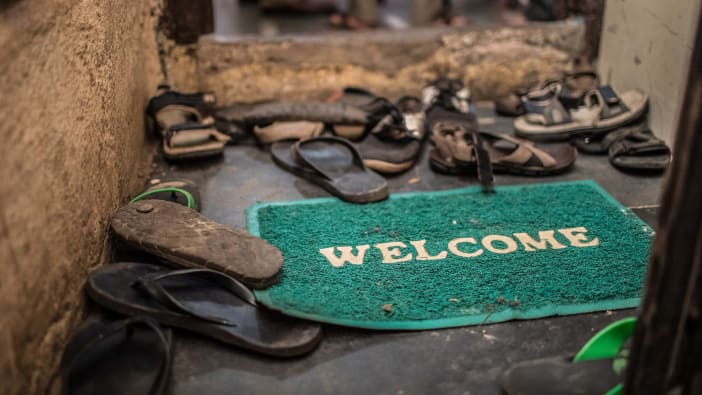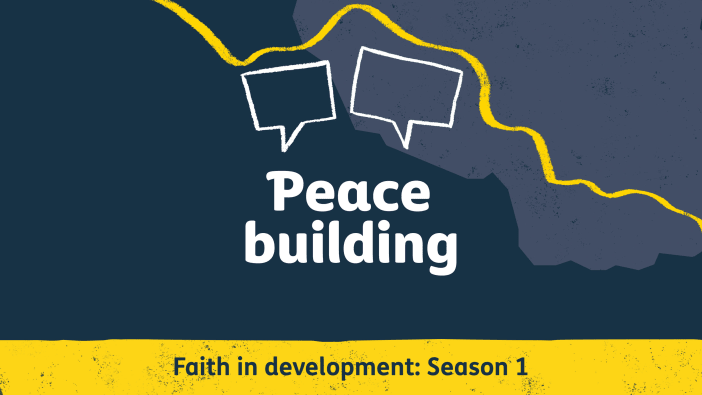Characteristics of PaCT work
Some of the lessons learned during this time about PaCT were:
It is a lifestyle Being a peace maker is not just a job description. It is not something Jesus calls us just to do, but what he calls us to be (Matthew 5:9). We have to model reconciliation in our own lives and organisations before we try to help others toward reconciliation. For an organisation, this means that being reconcilers and peacemakers has to be at the core of its mission and values. One of Tearfund’s partners worked in an ethnically mixed area that had previously suffered conflict, so they decided to employ an ethnically mixed team. They realised that to be agents of effective transformation, they had to model this transformation themselves.
It transforms Reconciliation work addresses the core values and attitudes that motivate us as human beings. PaCT deals with an internal change that has outward results. It involves the healing and restoration of relationships, and so it takes time. If an organisation wants to travel down the road of being reconcilers and peacemakers, then it has to be committed to, and prepared for, a long and often difficult journey.
It is complicated It is important to spend time understanding the specific local context if effective strategies are going to be developed to promote shalom. It is rarely simple. There are often a variety of complicated reasons and conditions that result in conflict. Each conflict is unique. It is important to understand the root causes of conflict in the area. This understanding can be used to plan effective advocacy to address these underlying issues. This can help prevent future conflicts. It is important to listen to all parties involved. Listening is a key part of understanding the context, but can also be used as an effective way of starting reconciliation. Learning to understand a conflict from the other person’s perspective is a powerful way of breaking down barriers between us.
It is spiritual PaCT has a deeply spiritual dimension to it. Prayer is vital for its success (Ephesians 6:10-19). Christian organisations working for reconciliation should make sure they are committed to, and supported in, prayer.
Gary Swart works for Tearfund as Head of Region for the Southern Africa Region.
Tearfund
100 Church Road
Teddington
Middlesex
TW11 8QE UK
Email: [email protected]
Case studies
When training events were held for the various organisations and community groups, different ethnic groups were invited together for the training. In one case Tearfund organised advocacy training for Albanians, Croats and Serbs in Belgrade. It was the first time since the war that the Albanians had interacted with Serbs, and for them it was a deeply healing experience.
One Tearfund partner ran a house re-building project for refugees and internally displaced people. The project included counselling support, provided by Christian counsellors. This support was available not only to beneficiaries but also to staff working with the refugees, as staff were often traumatised from listening to the stories of the beneficiaries.
A 'Good Practice Framework' for PaCT
- Model peace-building and reconciliation. It is not just a project – it is a lifestyle.
- Develop and maintain effective partnerships for peace. One organisation cannot bring peace to an area on its own. A combined effort of a number of organisations and stakeholders is usually needed. Everyone involved needs to be committed to peace.
- Make a long-term commitment of time and resources. Recognise that PaCT takes time and is hard to monitor. Think about this in the design and implementation phases.
- Be clear about your understanding of PaCT and your motivation for this work. Communicate this clearly and include it in the vision and values of the organisation.
- Don’t forget the importance of people. Reconciliation is about restoring relationships between people. Treat all people with equal respect and dignity. Don’t allow any form of discrimination.
- Consider conflict sensitivity at all levels within the organisation.










